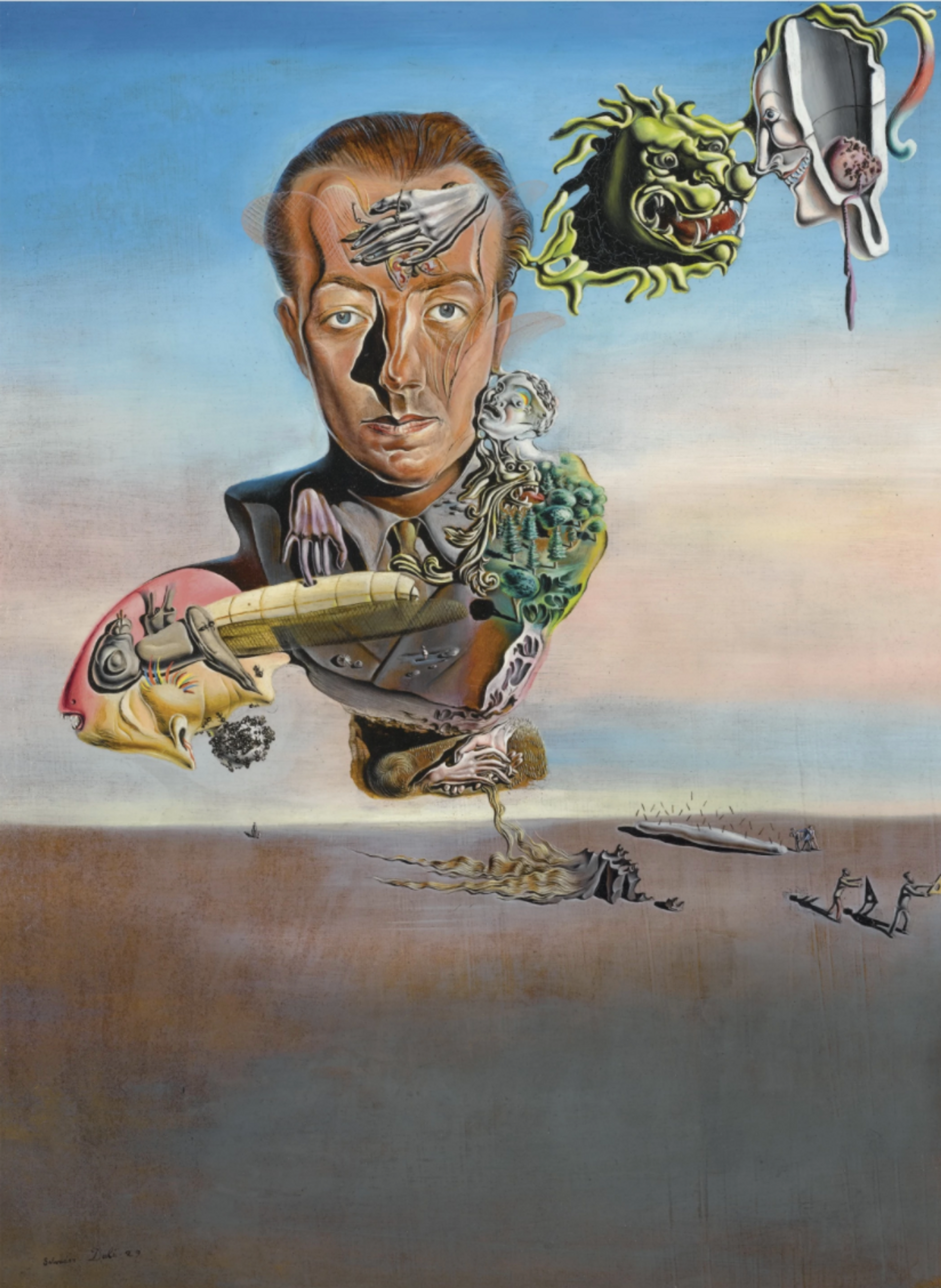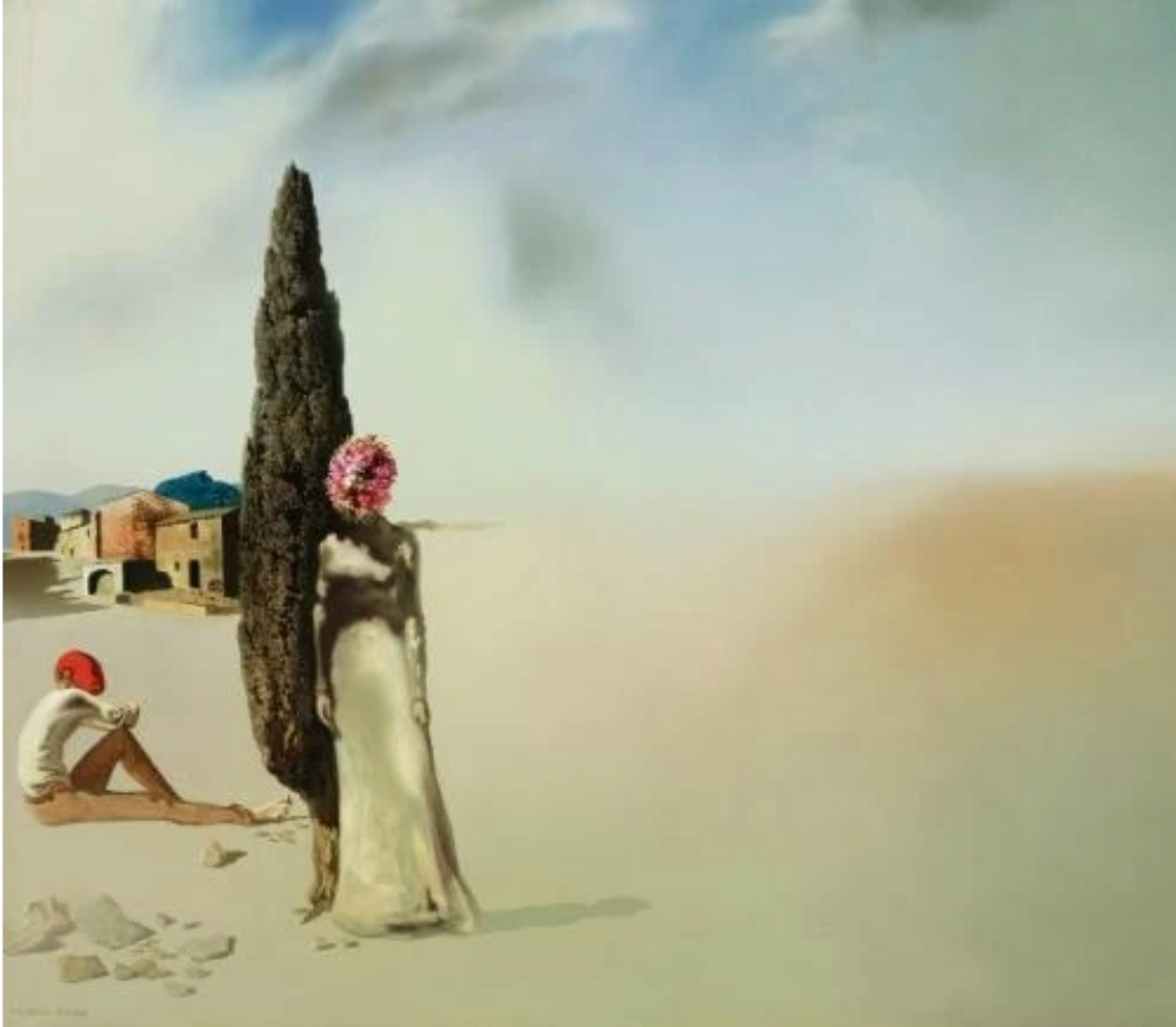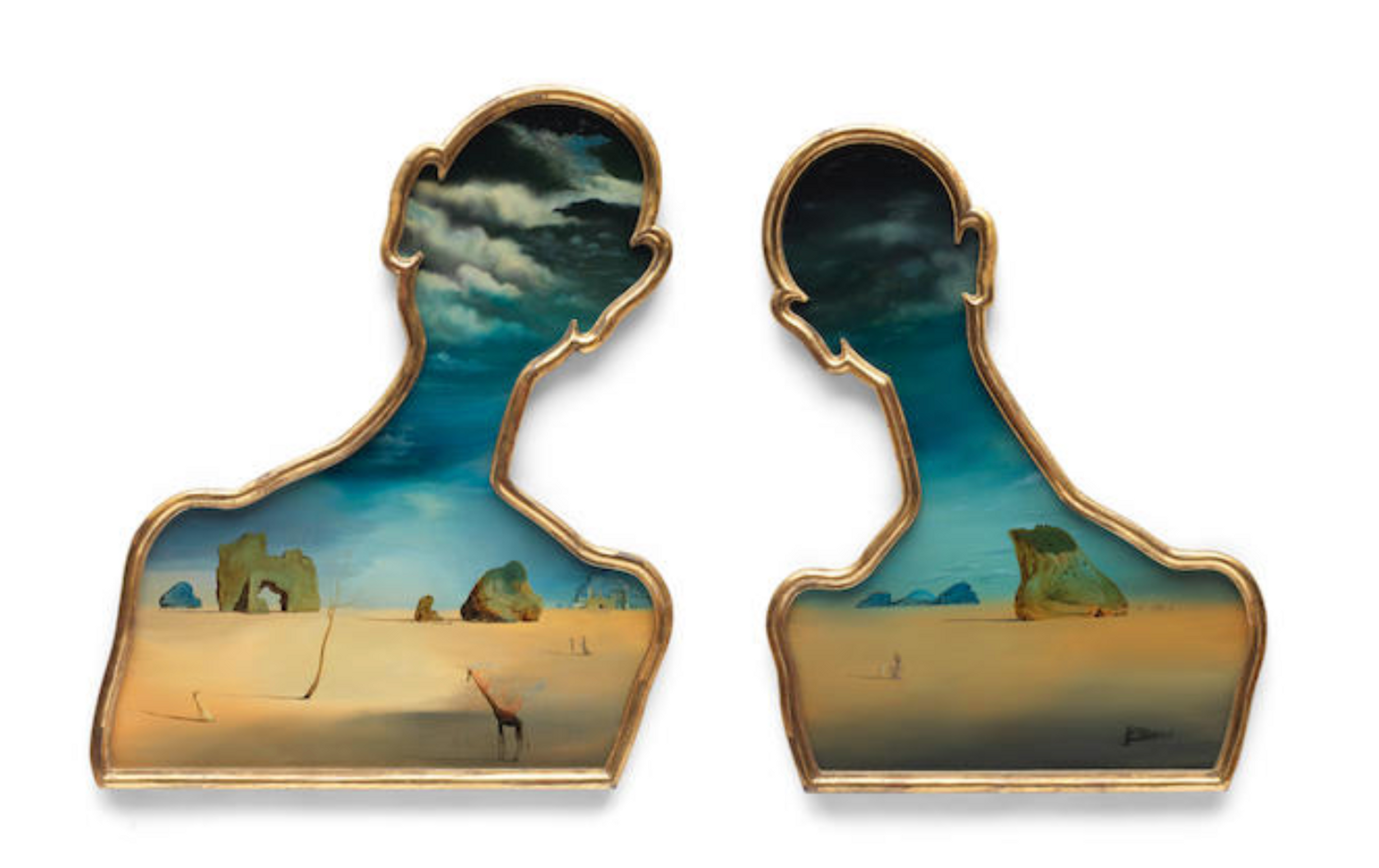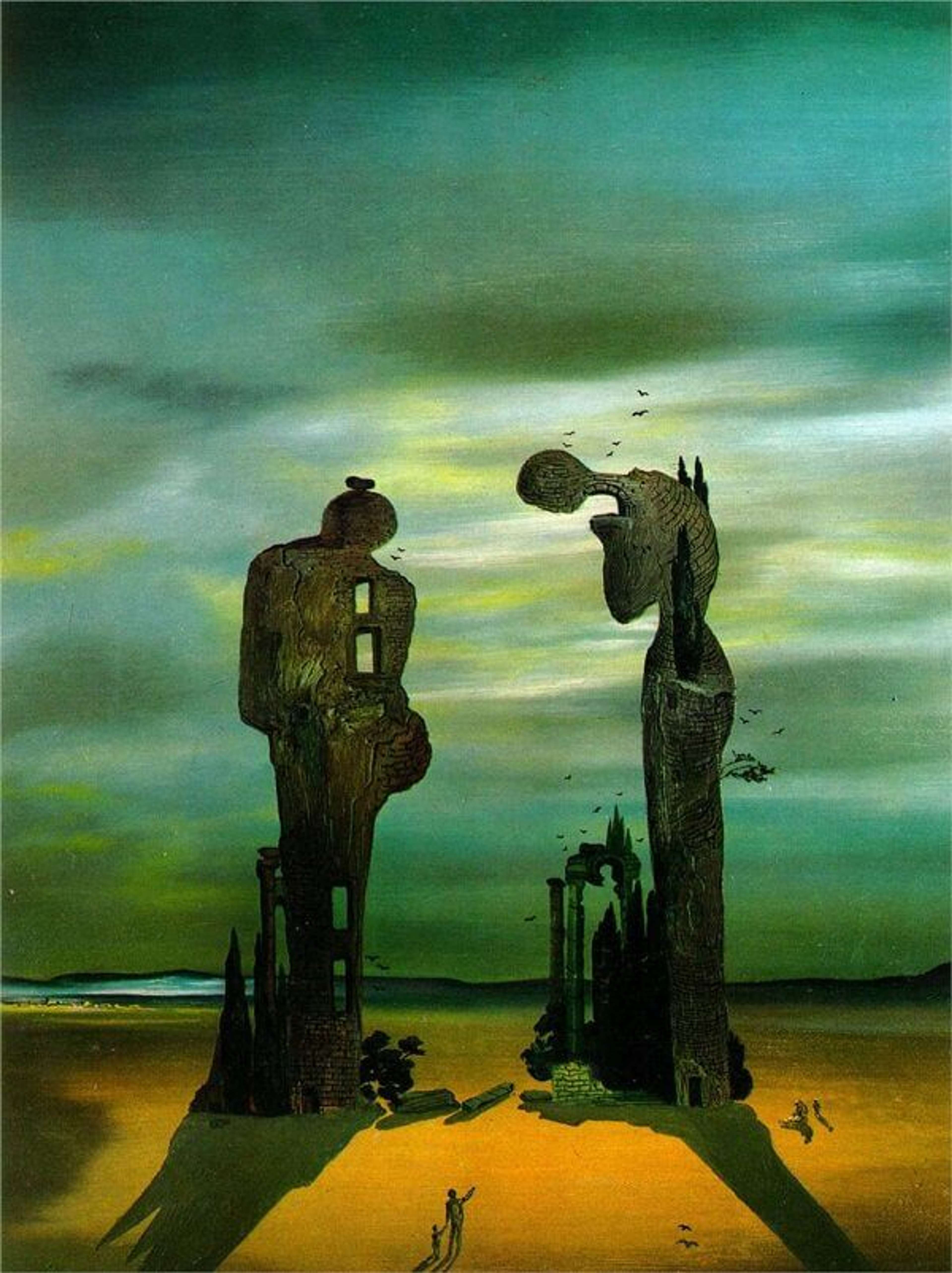 Persistence Of Memory © Salvador Dalí 1974
Persistence Of Memory © Salvador Dalí 1974
Interested in buying or selling
Salvador Dali?

Salvador Dali
157 works
The average value of Salvador Dalí's prints has experienced a steady 2% growth over the last 5 years, with the typical price paid now reaching £2,872. The highest price ever paid for a Salvador Dalí painting was achieved in February 2011, when Portrait De Paul Eluard sold for a staggering £13.5 million at Sotheby’s London.
Despite the positive impact of the impressive record prices listed below on the Dalí secondary market, Salvador Dalí’s print market is not as clean-cut as one would hope. Following a bout of reckless autograph and print signing that peaked during the 1960s, floodgates for tens of thousands of forgeries were opened. So, authentication is a factor to consider when looking to buy or sell a Dalí artwork on the secondary market.
Nevertheless, properly authenticated Dalí works continue to sell well on the secondary market, owing to the artist's significant status as a pioneer of Surrealism, which changed the course of 20th Century art irrevocably. This article explores the most expensive Salvador Dalí pieces sold at auction to date.
£13.5M for Portrait De Paul Eluard
 image © Sotheby's / Portrait de Paul Eluard © Salvador Dalí 1929
image © Sotheby's / Portrait de Paul Eluard © Salvador Dalí 1929Sold for nearly £13.5 million at Sotheby’s London on 10th February 2011, Portrait De Paul Eluard is the most expensive Dali painting ever sold.
Dali met Surrealist poet Eluard in 1929 while staying in Paris. It was the year in which Dali truly immersed himself with French Surrealism and the movement itself - this same year he worked on the now iconic film Un Chien Andalou. His relationship with Eluard was hugely influential, not least because Dali ended up marrying Eluard’s then-wife Gala. Indeed, this portrait visually unites Dali’s real life experience with the subconscious, psychological and imaginative. It is the pinnacle of surrealist portraiture.
£10.1M for Printemps Necrophilique
(US$16,322,500 )
 image © Sotheby's / Printemps Necrophilique © Salvador Dalí 1936
image © Sotheby's / Printemps Necrophilique © Salvador Dalí 1936One of Dali’s more overtly unsettling works, Printemps Necrophilique is a later example of the artist’s merging of dream, memory and subconscious. Two figures, a seated man and a flower headed woman occupy a hallucinatory, sparse desert landscape. Potentially reminiscent of his Catalonian youth, and definitely an example of his newly matured Surrealist painterly style, this work sold for just over £10 million at Sotheby’s New York on May 2nd 2012.
£8.2M for Couple With Their Heads Full Of Clouds
 image © Bonham's / Couple Aux Tête Pleines De Nuages © Salvador Dalí 1936
image © Bonham's / Couple Aux Tête Pleines De Nuages © Salvador Dalí 1936Inspired by the compositions of painter Jean Francoise Millet, there is a real sense of intimacy to Couple With Their Heads Full Of Clouds, achieved through the contours of the frames themselves depicting Dali and his wife Gala.The paintings themselves then lean in towards each other, completing a desert scene occupied by two white-clothed tables. Of course, the ‘heads’ of the image are filled with clouds and an expanse of blue sky.
This diptych sold for nearly £8.2 million at Bonhams London on October 15th 2020, and originally was given by the artist to Paul Eluard as a wedding present. An interesting exchange when one considers Gala was originally wed to Eluard, but then again, the surrealist’s never did concern themselves with conventional interactions did they?
£8.0M for The Angelus
(US$10,719,900 )
 image © Sotheby's / L'Angelus © Salvador Dalí 1935
image © Sotheby's / L'Angelus © Salvador Dalí 1935The image of The Angelus was taken directly from Millet’s painting of the same name. Depicting two peasants, heads bowed in prayer, this was a popular 19th century religious subject.
Dali’s work however, reimagines the figures as ancient towers, a response to his memories of the menhirs he saw in Catalonia. Notions of sexual dominance are also touched upon here through the female figure’s larger size. This painting recently sold for just shy of £8 million at Sotheby’s New York on the 16th of November 2021.
£5.4M for Moment Of Transition
(US$9,125,000)
 image © Christie's / Moment de Transition © Salvador Dalí 1934
image © Christie's / Moment de Transition © Salvador Dalí 1934Dali based the composition of Moment Of Transition on a memory of a childhood journey in a horse drawn carriage, just outside of his home town Figueres. One of his earlier immersions into the surrealist style, there is a palpable sense of discomfort and confusion here. What appears to be a cart in a desolate Catalonian landscape is revealed to be unbalanced and driverless upon closer inspection.
This combination of hyperrealistic painting with the dreamlike has come to define Dali’s works and, as a result, this piece sold for £5.4 million at Christie’s New York on May 6th 2014.
£5.2M for Spectre Du Soir Sur La Plage
(US$6,802,000 )
 image © Christie's / Spectre Du Soir Sur La Plage © Salvador Dalí 1935
image © Christie's / Spectre Du Soir Sur La Plage © Salvador Dalí 1935Having spent many childhood summers on the beach at Rosas, Costa Brava, Dali’s more haunting Spectre Du Soir Sur La Plage draws influence from his memories and morphs them into a haunting, desolate Surrealist composition.
Sold on the 14th November 2017 at Sotheby’s New York, this painting resonates with a sense of isolation, ambiguity and discomfort, from the vastness of the desert setting to the crippled figure of the spectre itself.
£5.0M for La Musique
 image © Sotheby's / La Musique © Salvador Dalí 1957
image © Sotheby's / La Musique © Salvador Dalí 1957This later painting is one of Dali’s more celebratory, theatrical works, depicting two disembodied musicians - a cellist and a pianist - set against a draped red curtain. Closer inspection reveals the cello to be the back of a human torso and we quickly realise that the pianist figure has no torso of her own, quickly reminding us that Dali’s Surreal, absurdist touch is still present.
The painting sold for just over £5 million at Sotheby’s New York on June 19th 2013 and draws inspiration from the photographs of fellow Surrealist Man Ray, as well as from Dali’s own fascination with the motif of the piano, which has been present in his work since the 1930s.
£4.1M for Honey Is Sweeter Than Blood
 image © Christie's / Le Miel Est Plus Doux Que Le Sang © Salvador Dalí 1927
image © Christie's / Le Miel Est Plus Doux Que Le Sang © Salvador Dalí 1927Often considered Dali’s first real Surrealist painting, Honey Is Sweeter Than Blood sets the stage for the artist’s depictions of dreamlike spaces and imagery that would come to define his career. It sold on the 9th of February 2011 at Christie’s London for £4 million and to this day remains an important example of the artist’s interest in psychic automatism and his assimilation of Surrealist ideas.
Considering he was only 23 years old at the time, Dali has drawn from the ideas of his friends - this work in particular was inspired by Frederico Garcia Lorca, who wrote in a letter to Dali that “the dissected woman is the most beautiful poem about blood you can create.” Unsurprisingly, this disturbing phrase haunted Dali for many years and inspired the motif of the headless woman present here.
£3.5M for Maison Pour Erotomane
 image © Sotheby's / Maison pour Erotomane © Salvador Dalí 1936
image © Sotheby's / Maison pour Erotomane © Salvador Dalí 1936As is typical of the works created at the peak of Dali’s Surrealist career, the Catalonian desertscape and rock formations dominate this work. The rocks themselves are sinuous and form fantastical motifs that the artist consistently returned to throughout the 1930s - we see this in the car and horse growing from the left hand structure. Two nude figures embrace at the base of the work.
The two structures are also reminiscent of L'Angelus motif that Dali consistently draws upon. The painting sold for £3.5 million at Sotheby’s London on 28th February 2018 and represents an archetypal Dali exploration into the subconscious, set amongst the memories of his own childhood.

